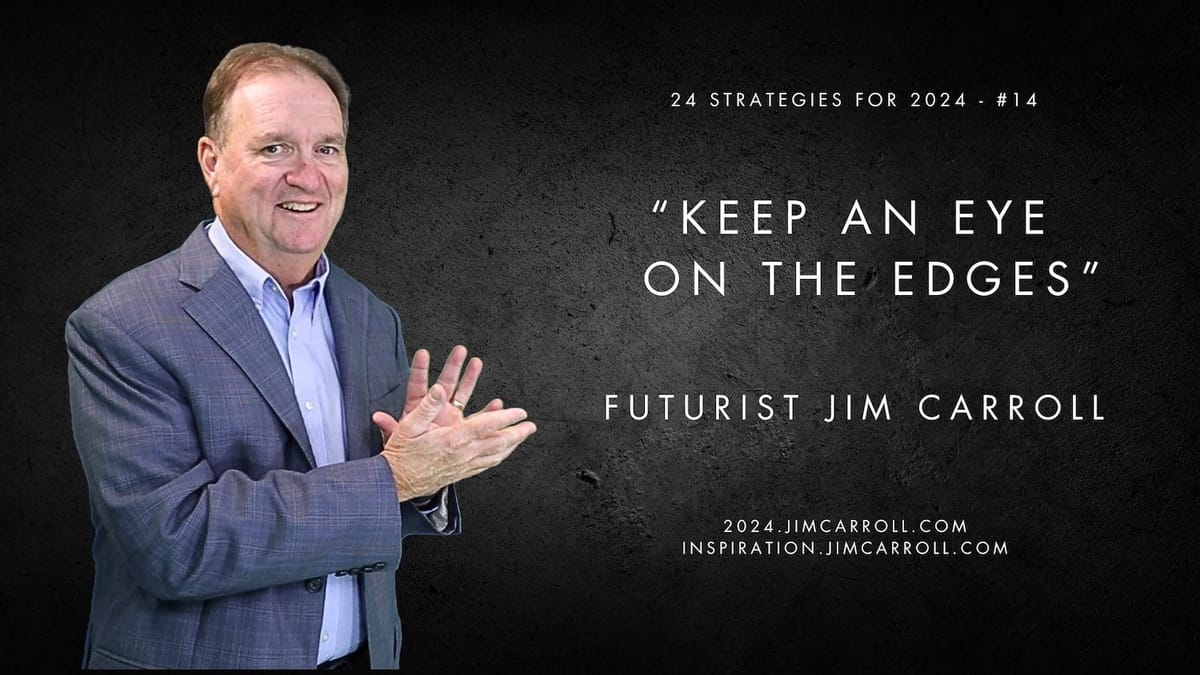Futurist Jim Carroll is running a series that began November 27, 2023, and will end on January 1, 2024 - '24 Strategies for 2024.' Rather than running a trend series for the upcoming year as he has previously, this series will examine a number of his personal beliefs on how to best align yourself with the future. There will be a post each weekday, excluding weekends and holidays, until the series runs its course. You will find it on his blog at https://blog.jimcarroll.com, or the website https://2024.jimcarroll.com
Increasingly, the future is created out in the crowd, out on the edges, and it's in your interest to watch the crowd and live at the edge.
No doubt you are aware of the open source movement - the collective initiative responsible for Linux, the dominant computer operating system in the world. Developed in the open through close collaboration and cooperative goals and ideas, the system is the foundation of much of our technology-based world of today. In my own home, I've got 5 computers that run variations of Linux to undertake various tasks; and yet, it's also embedded within many of the smart devices in my home. It's probably in your home too, and you might not even be aware of this fact! That little Roku device you use to watch TV? It's built on top of a variation of Linux - the future of our media and entertainment world came from out on the edges.
If you want to understand the future, you need to understand both the history and future of ideas and concepts like this. That's why should keep your eye on what's happening with concepts such as open science, open data, open innovation, open collaboration, and of course, crowdsourcing and crowdfunding. While the popular belief is that many new products, ideas, solutions, and concepts are developed by corporations in sophisticated research labs, equally more occurs in global collaborative communities that share common goals, beliefs, values - passion, and purpose. Those initiatives then actually become the foundation for what much eventually transpires in those research labs!
The whole idea is that 'open' development will help to eliminate errors, improve quality, remove hidden agendas, demolish the idea of 'control' of platforms and technologies, and much more. As many will like to point out - the future is open. Or at least, it should be open. - and should happen within global, collaborative communities that have nothing to hide. Keeping an eye on - and even participating - in these collaborative communities and open initiatives will help you to understand so much more about how the future will evolve, and that's why this is strategy #14 in my 24 Strategies for 2024 series. Innovation!
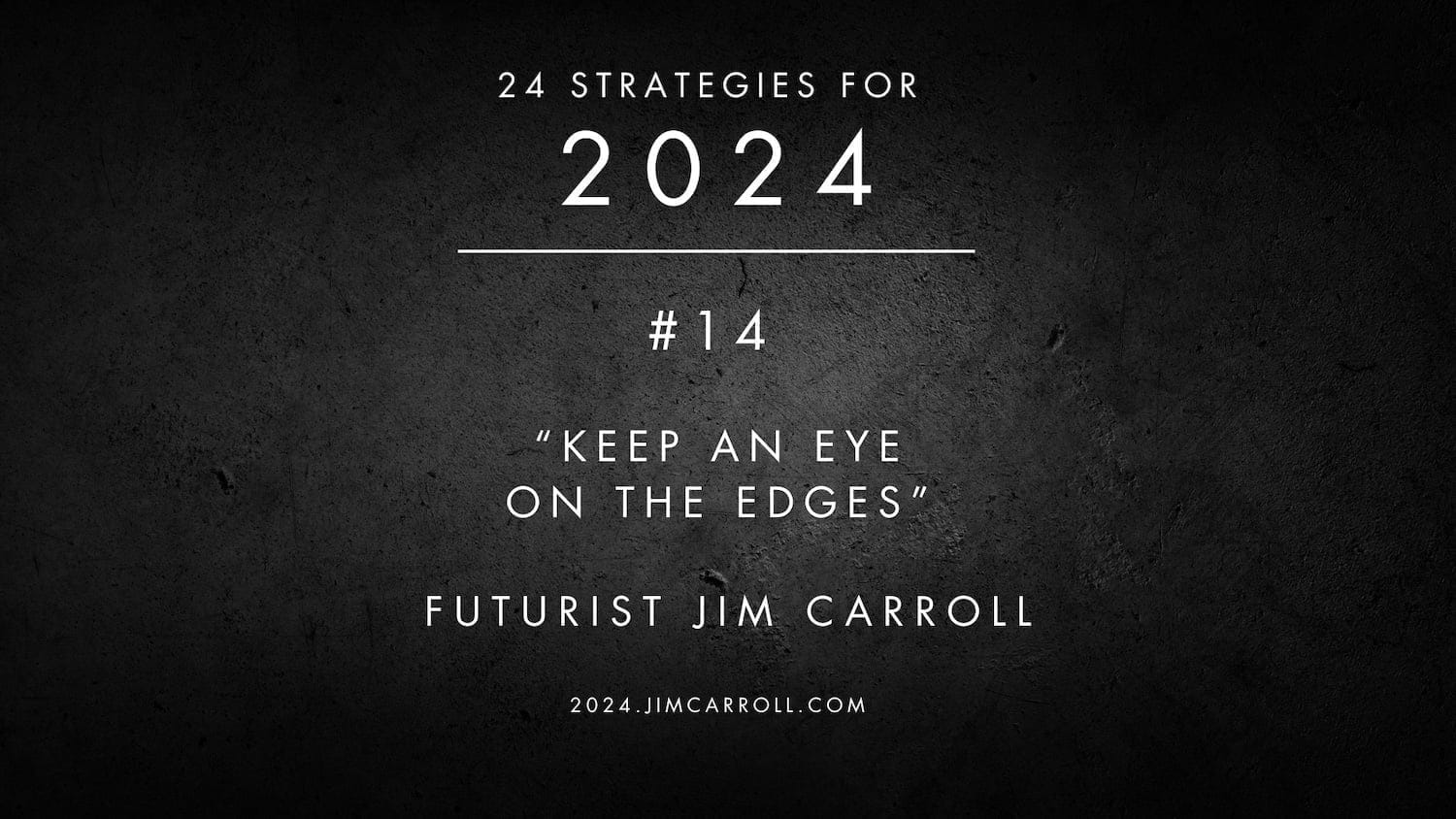
What is the idea of 'open.' and why is it important? I asked ChatGPT for a definition:
The open source movement is a multifaceted and evolving philosophy that advocates for the open exchange of information, collaborative participation, rapid prototyping, transparency, and community-oriented development. It extends beyond the realm of software to encompass a broad range of industries and disciplines. This movement champions the idea that by sharing knowledge, resources, and expertise openly, a diverse community of contributors can drive innovation, enhance quality, and accelerate problem-solving in various fields. It embodies a commitment to the principles of free access, open collaboration, and shared improvement of products, services, and ideas, fostering an inclusive environment where collective efforts lead to greater advancements and accessibility for all.
In essence, let's all build tomorrow, together!
It's critical to keep in mind that this idea of open collaboration and innovation goes far beyond technology and software; indeed, there are 'open' movements in many industries, all of which are helping to define the future of how that industry will evolve.
Consider agriculture - these are initiatives by which farmers, researchers, and companies are using 'open' concepts to share data on crop patterns, weather, and soil health to improve farming practices and develop better crop varieties. In manufacturing, open innovation concepts are driving faster product development and concepts such as rapid prototyping, where companies are collaborating with suppliers, customers, and even competitors to accelerate product development and improve manufacturing processes. 3D printing technology has led to a massive acceleration of new manufacturing concepts as people come to freely share their models and methodologies under 'open' philosophies. In healthcare, we are seeing massive initiatives that support the open sharing of information related to drug discovery and treatment strategies as well as open data initiatives for better disease tracking and public health responses. In energy, the concept is exploding with initiatives in connected energy, a trend I covered in my Big Future series, wherein we see a new smart, intelligent, and connected energy grid emerging that provides for a local community-oriented energy grid.
What are the implications of these types of initiatives? The future happens faster because ideas about the future are shared faster!
I spoke of this at my recent keynote in Hawaii on the impact of AI in agriculture, outlining the many open-data initiatives that are based on data that allows for object detection, size, and color determination in plant phenotyping, and other initiatives that will help to identify the ripening stages of fruit and determining chlorophyll content as an indicator of plant health. Both of these are and will be used in fast-evolving AI initiatives in the industry.
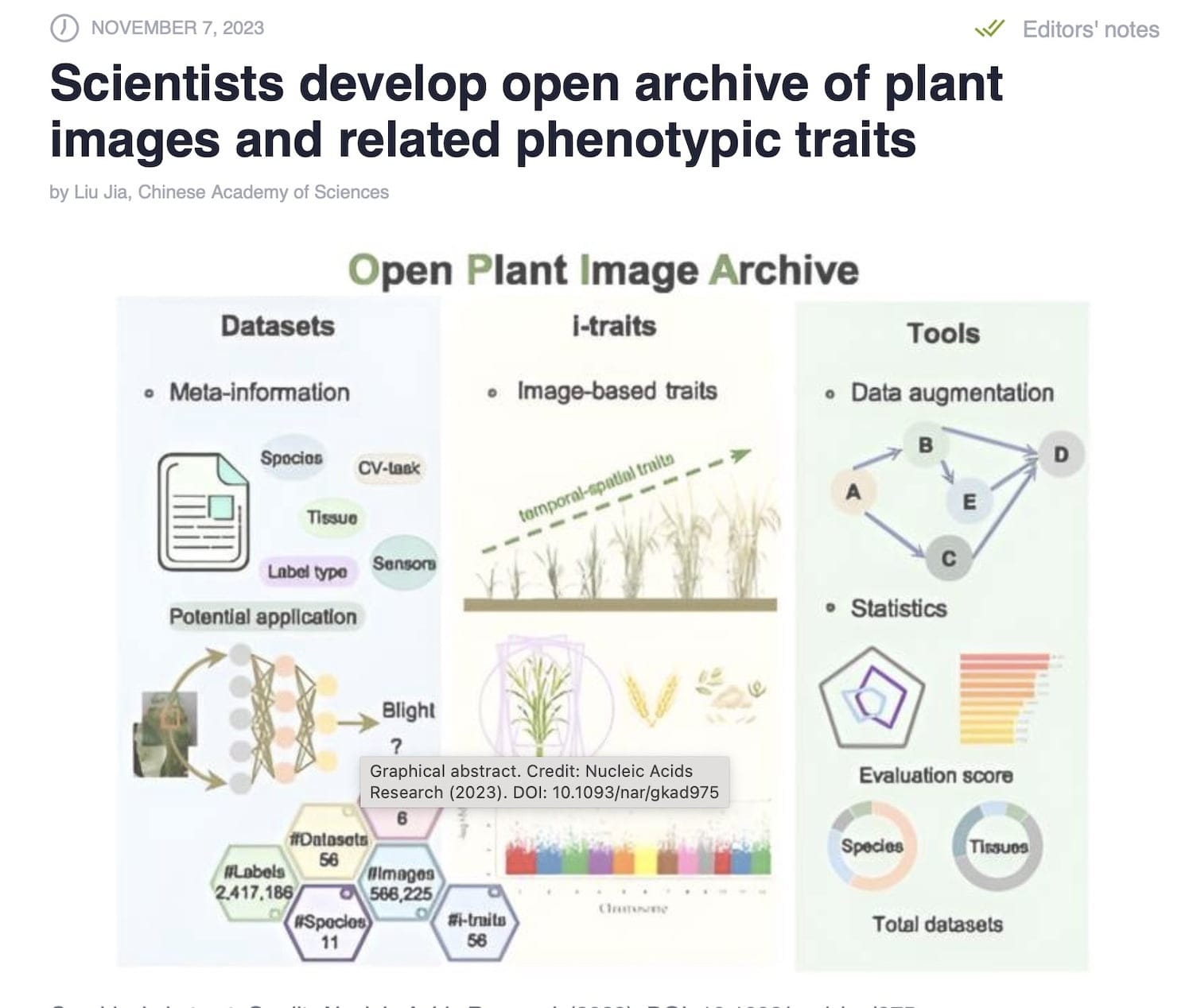
Healthcare? A really good example is happening within the "looper community" of type 1 diabetes; it's a global initiative to support and develop open-source automated insulin delivery systems to bypass the monopolies of commercial device manufacturers. Essentially, it's a group of people impacted by a common disease, busy sharing their insight and knowledge to develop themselves better alternatives for the future; What is looping? An article over at BCDiabetes outlines the initiative.
The three hottest words in Type 1 diabetes these days are “loop”, “looper” & “looping”. These refer to the groundbreaking revolutionary open source software implementation of the Artificial Pancreas, the technological cure of Type 1 diabetes. Loopers are Type 1s who use the Loop app running on an iPhone to control their insulin pump based on the results of their continuous glucose monitor (CGM): when they do so they “looping”.
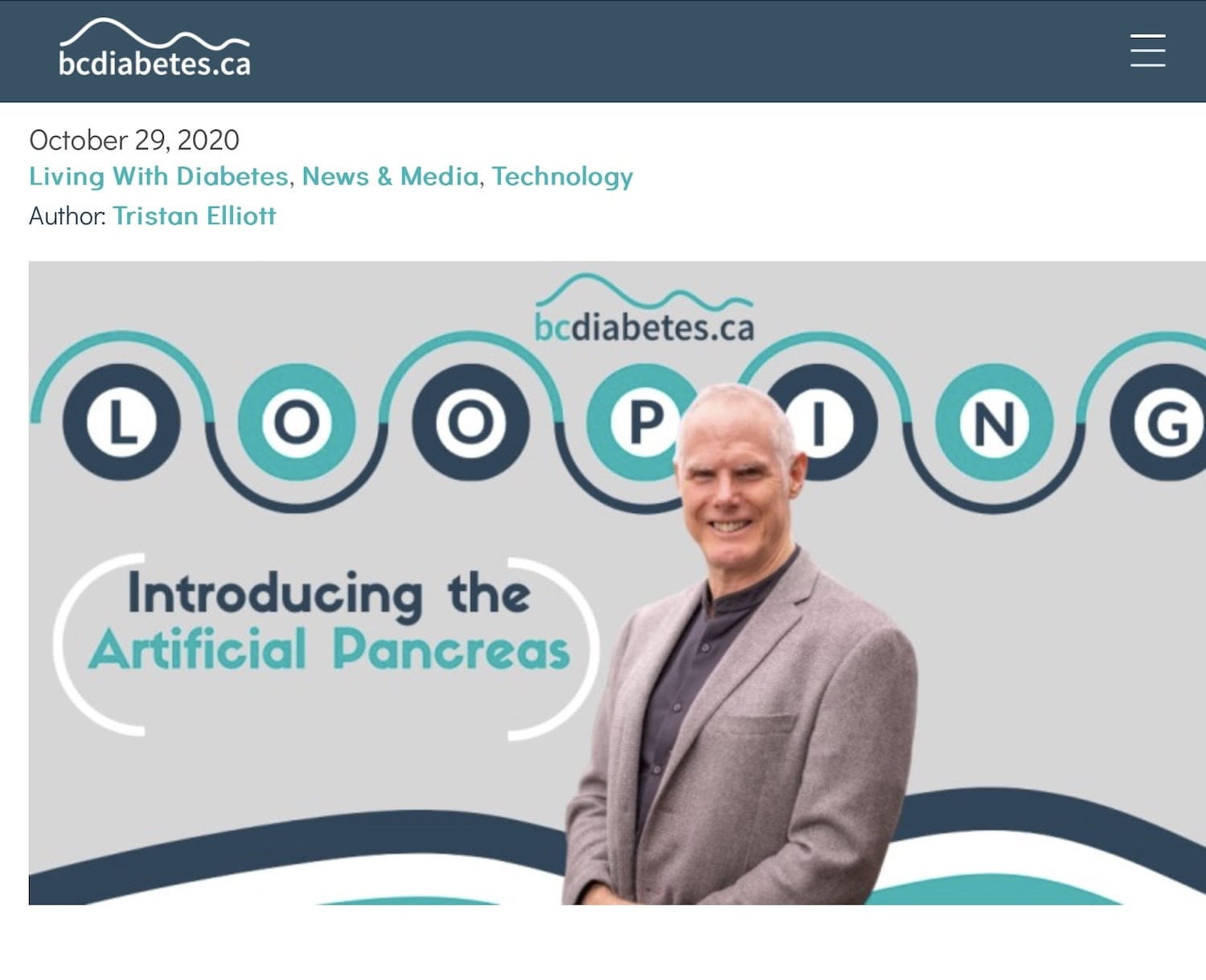
Then there are the 'farmer tinkerers' - young, technology-focused farmers who share their ideas on 'hacking' tractors and such to give them more capabilities, or who are busy developing the automated weed-zapping agricultural robots of tomorrow. ; This is seeing the development of autonomous tractor and farm technology, where farmers are sharing designs for farming equipment or irrigation systems to accelerate the opportunities that they see for tomorrow.
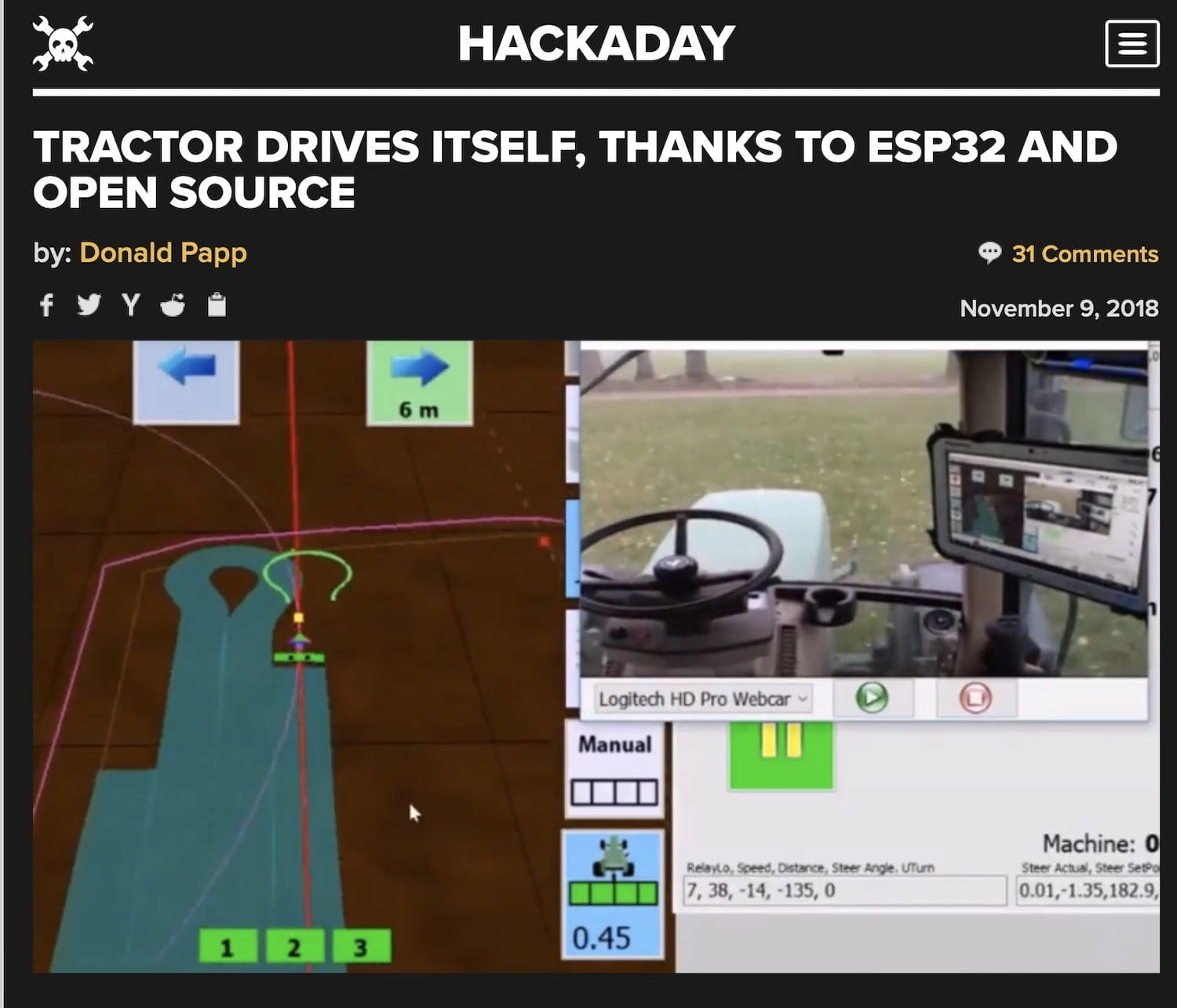
All of these groups share their ideas at speed - and understanding what they do and why they do it is extremely helpful in understanding tomorrow, and today.
Of course, many people have many different views on such concepts and activities. There has long been an often healthy - and frequently unhealthy - tension between open source development and private R&D that goes back as long as there have been collaborative efforts. Famously, the computer industry split when Bill Gates and Steve Jobs did not see eye to eye on the future of software, with the former prompting closed concepts with MS-DOS. Today, those viewpoints have shifted diametrically, with Apple being a massively closed system and Microsoft embracing as much of the open-source movement as it can.
Tomorrow? One of the most important trends of our time, of course, is artificial intelligence, and so much of AI development is occurring out on the edges. Initiatives like Hugging Face - an AI platform that helps users build, deploy, and train machine learning models -- allow for the development of new AI models to occur in the 'open,' collaborative world. Other initiatives like MIstral promote the idea of utilizing major open-source concepts in the development of AI models, as an alternative to systems like ChatGPT and others; and what is significant is that as of late, Mistral AI's open-source AI model is outperforming many of these proprietary models. The fact is, the fast-emerging world of AI all around you is happening so fast because so much of it is happening in the open.
Why do I explain all this? Because I presume that by following this series, you want to understand how the future evolves, and how to innovate with it as it develops to discover opportunities.
And to do that, you should be fully immersed in and understanding of where it develops - out on the edges!
Futurist Jim Carroll believes that one of the most difficult things for people to figure out about the future is to figure out where it is happening!

